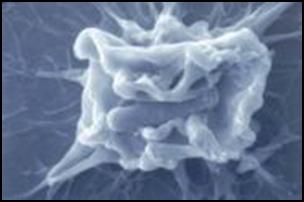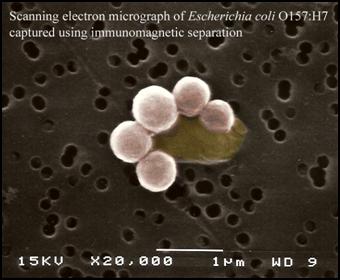Biotechnology – Microbial Systems
Modern research in cellular and molecular biology offers unparalleled opportunities to provide solutions to society's most urgent problems. Emerging biotechnology industries developing products to maintain biodiversity, restore soil and water quality, develop new pharmaceuticals, decrease our dependence on nonrenewable resources and improve food and fiber production. Students interested in microbiology, animal or plant science, biochemistry and animal or human medicine will find careers in the diverse areas of biotechnology in an academic or industrial setting. Students will also be prepared to enter graduate or professional schools for further study.
The Bachelor of Science in Biotechnology is an interdisciplinary degree offered by the College of Agriculture. Students pursue a basic science curriculum the first two years and then choose an area of emphasis in plant, animal or microbial systems.
What is the Microbial Systems option?
Students interested in working out answers to problems and in creating useful products should consider this option which will enable them to work in the emerging biotechnology industries. These industries are involved in developing products to maintain biodiversity, restore soil and water quality, develop new pharmaceuticals or vaccines to combat disease, decrease our dependence on nonrenewable resources, provide tools and skills for investigative and forensic sciences and improve food and fiber production. Biotechnology uses organisms to produce commercial products, either through natural processes, or through genetic manipulation.

What courses would I take?
Specialty courses are offered in general, medical, food and water, environmental, ecological and biochemical microbiology as well as immunology, virology, molecular biology, microbial physiology and genetics. In addition to science courses, students should have skills in computer use, math ability and verbal and written communications.
What opportunities for laboratory research are there in Biotechnology - Microbial Systems?
 The Department has always been a strong supporter of undergraduate research to provide
opportunities for students to gain experience outside of class. Students are encouraged
to look over our faculty and their research interests to find a good fit with their
own interests and career goals. Some student researchers then present their findings
at various conferences. They may even have their name included on a publication in
a professional journal.
The Department has always been a strong supporter of undergraduate research to provide
opportunities for students to gain experience outside of class. Students are encouraged
to look over our faculty and their research interests to find a good fit with their
own interests and career goals. Some student researchers then present their findings
at various conferences. They may even have their name included on a publication in
a professional journal.
How does the Microbial Systems option prepare me for employment?
A Bachelor of Science degree in Biotechnology will prepare students for a career in the diverse areas of biotechnology in an academic institution, government agency or industrial setting. Some examples include: laboratory technician, teaching, basic research, development of medical treatments, public relations, sales, environmental regulation, energy production, waste management, and crop and livestock production. Students will also be prepared to enter graduate or medical professional schools for further study.
